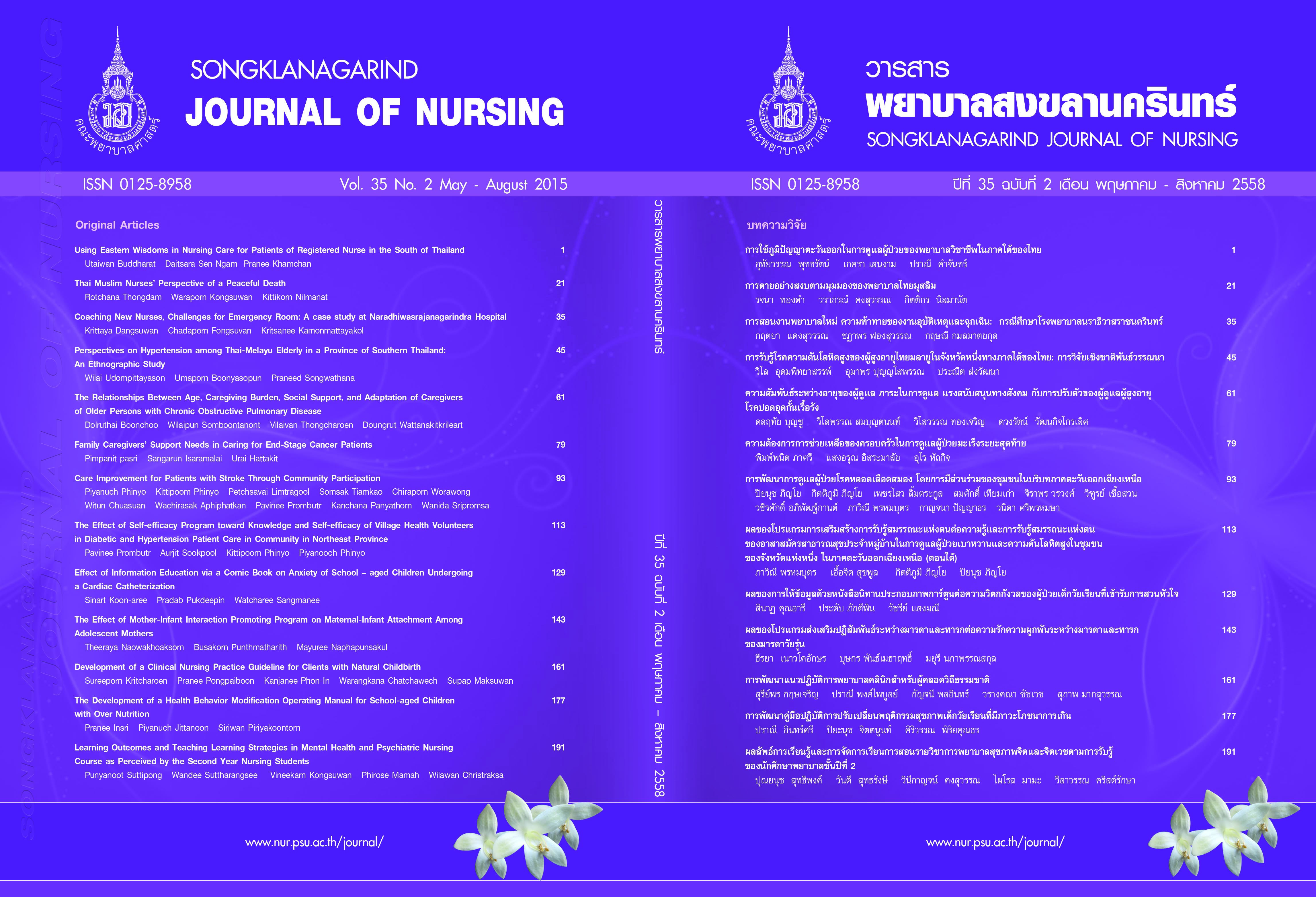Perspectives on Hypertension among Thai-Melayu Elderly in a Province of Southern Thailand: An Ethnographic Study
Main Article Content
Abstract
Hypertension is one of the leading health problems among Thai elderly people and it is poorly controlled. Understanding the Thai-Melayu elders who had directly experienced hypertension in their way of life is essential for designing strategies to promote healthy living. This study aimed to explore the perception on hypertension among Thai-Melayu elderly in a province of Southern Thailand. An ethnographic study was conducted using in-depth interviews, participant observation and focus group discussion. Data from eleven key and seven general informants was collected and analyzed using thematic analysis based on Miles and Huberman’s method (1994).
Results showed that the general perception of hypertension of Thai-Melayu elderly depended on experiences of illness perception and cultural beliefs. Three main themes of hypertension were perceived as 1) having high blood pressure is a common illness,2) realizing the danger of hypertension when obvious symptoms occurred, and 3) high blood pressure is from bad flow of “Leard” (blood) and Lom” (wind).
Conclusion: Understanding hypertension with respect to how Thai-Melayu elders perceived their symptoms based on cultural beliefs is essential. Health promotion and health education should be integrated with cultural perception of hypertension to develop appropriate strategies for management of hypertension in the Thai-Melayu community.


